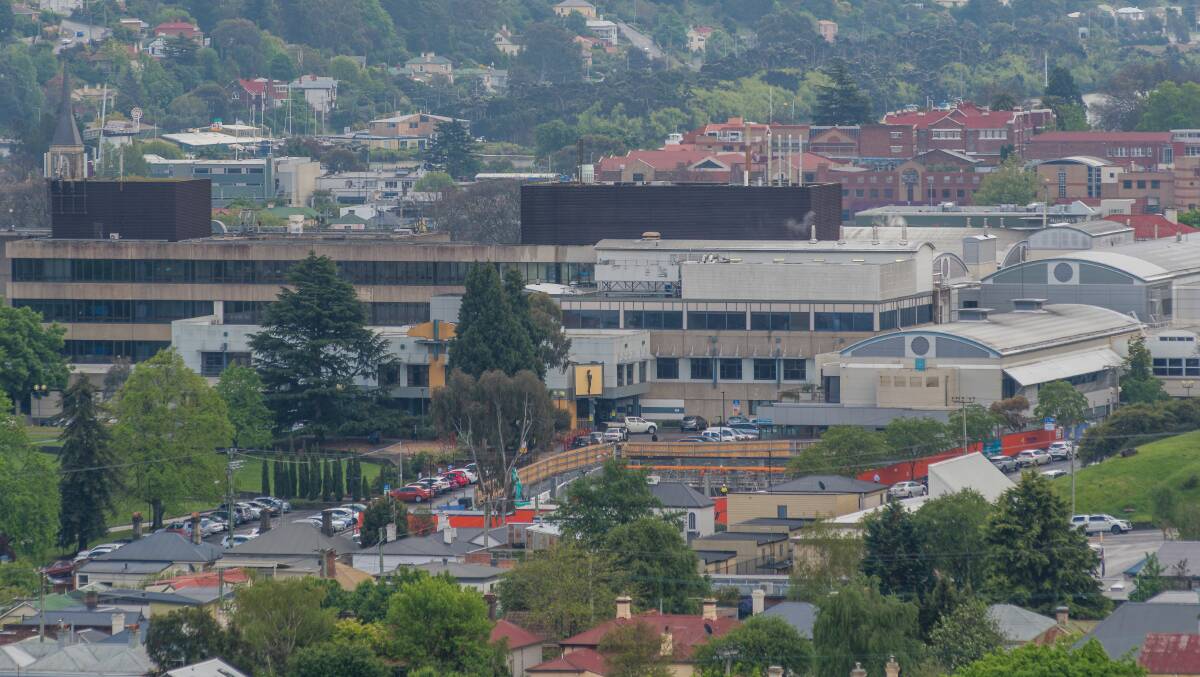
Doing business in health is changing.
Subscribe now for unlimited access.
or signup to continue reading
The relationship between people and the health system is changing. This a cultural shift in the fundamental relationships between patient, doctor, the broader community, and the health system.
It is happening in Tasmania and, for the most part, Tasmanians welcome this change.
Feedback from across the state suggest the community is seeking an avenue to have its say on the health system. Many people I have spoken to talk about the need to "involve consumers in the decision making" and "ensure the consumer voice is taken seriously and becomes a more valued part of the development of health policy and programs".
These comments represent a shift in thinking as consumers - who could be patients, ex-patients, families, carers and community groups who have experienced the health system - are increasingly wanting to have a say and influence the health policies and priorities for Tasmania.
Under the Australian Charter of Healthcare Rights, every person has a right to be included in decisions and choices about their care. This means you can join in and be actively involved in making decisions and choices about your care and health service planning.
Being able to have your say is also a requirement under the National Safety and Quality Health Service Standards. This standard, which all states have agreed to, aims to ensure consumers are partners in the design, delivery and evaluation of healthcare systems and services, and that patients are given the opportunity to be partners in their own care. This is now a requirement for many health service organisations, including hospitals.
These principles are also outlined in the Charter signed by the Tasmanian Minister for Health which you can find in the Tasmanian Health Services Act 2018.
Despite this, the challenge we face in having a say on our healthcare is still considerable.
Firstly, how do we have a say on our personal health care? It is not easy to say to a medical expert: what does this mean? Are there other options? Can I think about it? Should I get a second opinion?
These are all valid questions we wouldn't hesitate to ask if we were to buy a car, build a house or even purchase a coat, yet we are often uncomfortable asking them when it relates to our health and well-being.
Secondly, how can one person provide meaningful input into a large, complex system, and influence positive change? Where do you start?
This is made more complex as there are already many voices and public commentary on the Tasmanian health system, some positive, some not so positive.
The focus of these public discussions in Tasmania (and often in other Australian states as well) is mostly on the ability of our hospitals to deliver quality and safe healthcare for all Tasmanians when they need it. This is very important and certainly worthy of a public conversation.
The Consumer and Community Engagement Council for the Launceston General Hospital is a case where consumer input is underway.
Council chairman Peter O'Sullivan explains: "We were established to support the hospital gain quality and safety compliance and, at present, we are on 17 committees or working groups throughout the hospital".
"My council was central to the recent upgrade of the Charles Street entrance to the hospital where we identified an issue of safety for patients, staff and visitors to the hospital. We were able to improve access dramatically by suggesting a raised pedestrian crossing with lights, signage and 40 kilometre per hour speed limit. We followed this through with the LGH and Launceston City Council to completion".
On the other hand, much of the feedback I have received isn't about the hospital system.
Tasmanians are telling me they want to have a deeper conversation about how to ensure the consumer voice "is taken seriously and becomes a more valued part of the developments of health policy and programs".
Tasmanians want to be able to "influence health policies and priorities in Tasmania", not just to provide public comment on the performance of our hospitals and want "funding for prevention and health promotion".
To help Tasmanians achieve this Minister for Health Michael Ferguson and Primary Health Tasmania have tasked us to build an organisation that both facilitates and supports consumer and community feedback into the health system.
It's an opportunity and a challenge for Tasmanians to think long term. Ten years or more into the future - what kind of health system do you want? What kind of ideas do we want to share with service providers and decision makers?
The business of health is changing, so it makes sense the consumer is too. We need to become an active part of finding solutions, and not be afraid to share them with the people who can help turn them into action.
- Bruce Levett is the Executive Officer of Health Consumers Tasmania.













